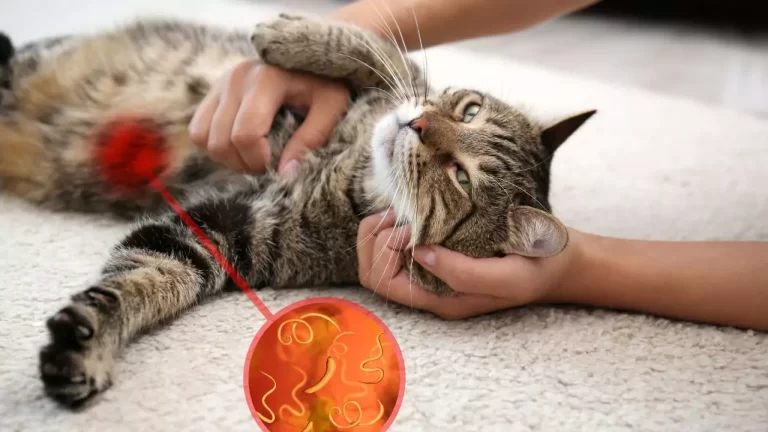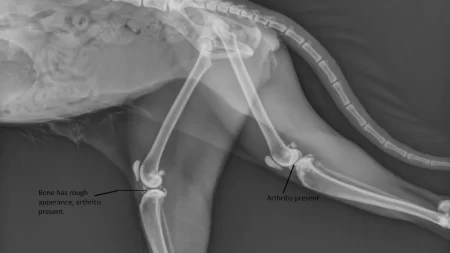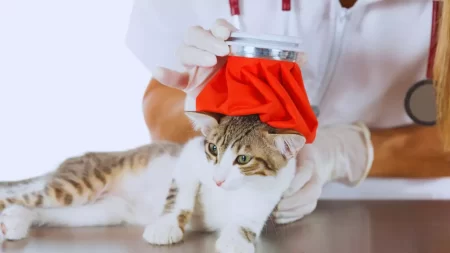Cats can get worms from various sources, such as eating infected prey, coming into contact with contaminated feces, or being born with them. Worms are parasites that live inside the cat’s intestines and can cause various health problems, such as vomiting, diarrhea, weight loss, and anemia. Some worms can also infect humans and other animals, so it is important to prevent and treat worm infestations in cats.
Ways Cats Can Contract Worms
There are several ways that cats can contract worms, depending on the type of worm and the cat’s lifestyle. Some of the most common ways are:
- Ingesting infected prey: Cats that hunt rodents, birds, or other small animals can ingest worms or their eggs that are present in the prey’s tissues or organs. This is especially common for tapeworms, which are transmitted by fleas that infest the prey.
- Contact with contaminated feces: Cats that share litter boxes, roam outdoors, or scavenge garbage can come into contact with feces that contain worm eggs or larvae. The cat can then ingest the worms by grooming itself or licking its paws. This is especially common for roundworms and hookworms, which can survive in the soil for long periods.
- Transmission from mother to kitten: Cats that are pregnant or nursing can pass worms to their kittens through the placenta or the milk. This is especially common for roundworms, which can infect kittens before they are born or shortly after birth.
Types of Worms Commonly Found in Cats
Four main types of worms are commonly found in cats: roundworms, tapeworms, hookworms, and heartworms. Each type of worm has a different life cycle, appearance, and effect on the cat’s health.
- Roundworms: Roundworms are the most common type of worm in cats. They are white or brown and can grow up to several inches long. They look like spaghetti or noodles, and can sometimes be seen in the cat’s vomit or feces. Roundworms can cause diarrhea, vomiting, weight loss, pot-bellied appearance, and poor growth in kittens. They can also infect humans, especially children, and cause serious complications, such as blindness or organ damage.
- Tapeworms: Tapeworms are flat, segmented worms that attach to the cat’s intestinal wall. They can grow up to several feet long but are usually not visible in the cat’s feces. Instead, they shed segments that look like rice grains or sesame seeds and can be seen around the cat’s anus or in its bedding. Tapeworms can cause weight loss, itching, and irritation in the cat. They can also infect humans, but this is rare and usually not serious.
- Hookworms: Hookworms are small, thin worms that hook onto the cat’s intestinal lining. They can be less than an inch long and are usually not visible in the cat’s feces. Hookworms can cause anemia, weakness, bloody diarrhea, and weight loss in the cat. They can also infect humans, and cause skin lesions, itching, and inflammation.
- Heartworms: Heartworms are long, thin worms that live in the cat’s heart and lungs. They can be up to a foot long and are usually not visible in the cat’s feces. Heartworms can cause coughing, breathing difficulties, weight loss, and sudden death in the cat. They can also infect humans, but this is very rare and usually not serious.
Symptoms of Worm Infestation in Cats
The symptoms of worm infestation in cats can vary depending on the type and severity of the infection. Some of the common symptoms are:
- Vomiting: Cats can vomit worms or worm segments, or due to irritation or obstruction of the digestive tract. Vomiting can also lead to dehydration and electrolyte imbalance in the cat.
- Diarrhea: Cats can have diarrhea due to inflammation or damage of the intestinal lining, or due to malabsorption of nutrients. Diarrhea can also lead to dehydration and electrolyte imbalance in the cat.
- Weight loss: Cats can lose weight due to reduced appetite, malabsorption of nutrients, or increased metabolic demand. Weight loss can also affect the cat’s immune system and make it more susceptible to other infections or diseases.
- Visible worms in feces: Cats can pass worms or worm segments in their feces, which can be seen by the naked eye or under a microscope. This can indicate the type and extent of the worm infestation in the cat.
Prevention and Treatment of Worms in Cats
The prevention and treatment of worms in cats can depend on the type and severity of the infection, as well as the cat’s age, health, and lifestyle. Some of the general measures are:
- Regular deworming: Cats should be dewormed regularly, according to the vet’s recommendation, to eliminate any existing worms or prevent new infections. Deworming can be done orally, by injection, or by topical application, depending on the type of worm and the product used. Deworming can also be combined with other treatments, such as flea control, to prevent the transmission of tapeworms.
- Proper hygiene and sanitation: Cats should be kept in a clean and sanitary environment, to reduce their exposure to worm eggs or larvae. This includes cleaning and disinfecting the litter box, bedding, toys, and food and water bowls regularly, and disposing of any feces promptly and safely. This can also prevent the spread of worms to other cats, humans, or animals.
- Monitoring outdoor activities: Cats that go outdoors should be monitored and restricted from hunting, scavenging, or roaming in areas where they can encounter infected prey, feces, or soil. This can reduce their risk of contracting worms or other parasites or diseases. Outdoor cats should also be vaccinated and tested for worms regularly, to protect their health and prevent transmission to indoor cats or humans.
- Regular vet check-ups: Cats should be taken to the vet for regular check-ups, to detect any signs of worm infestation or other health problems. The vet can perform a physical examination, a fecal test, a blood test, or an imaging test, depending on the type of worm and the cat’s condition. The vet can also prescribe the appropriate treatment, dosage, and duration, to eliminate the worms and restore the cat’s health.







